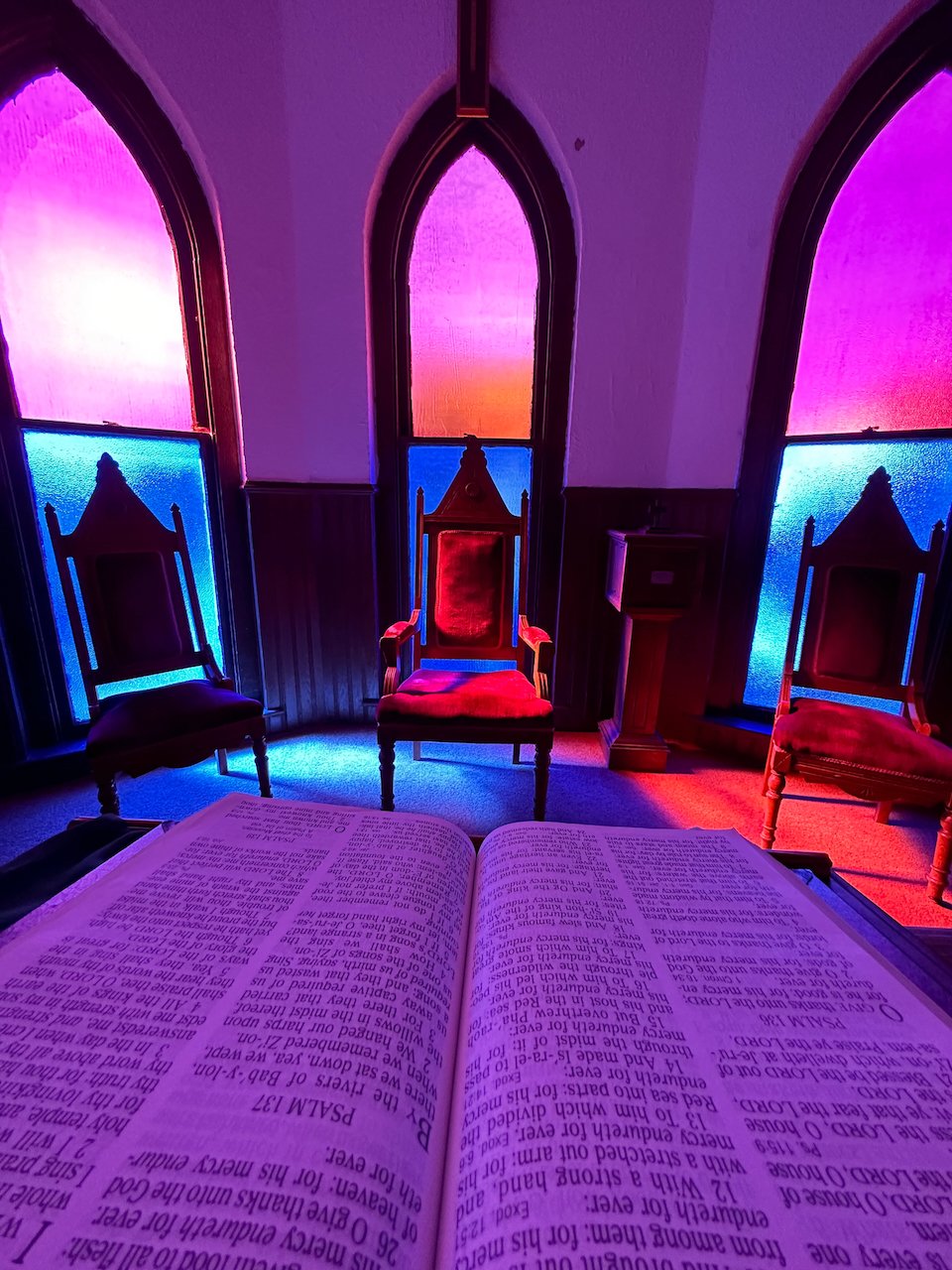

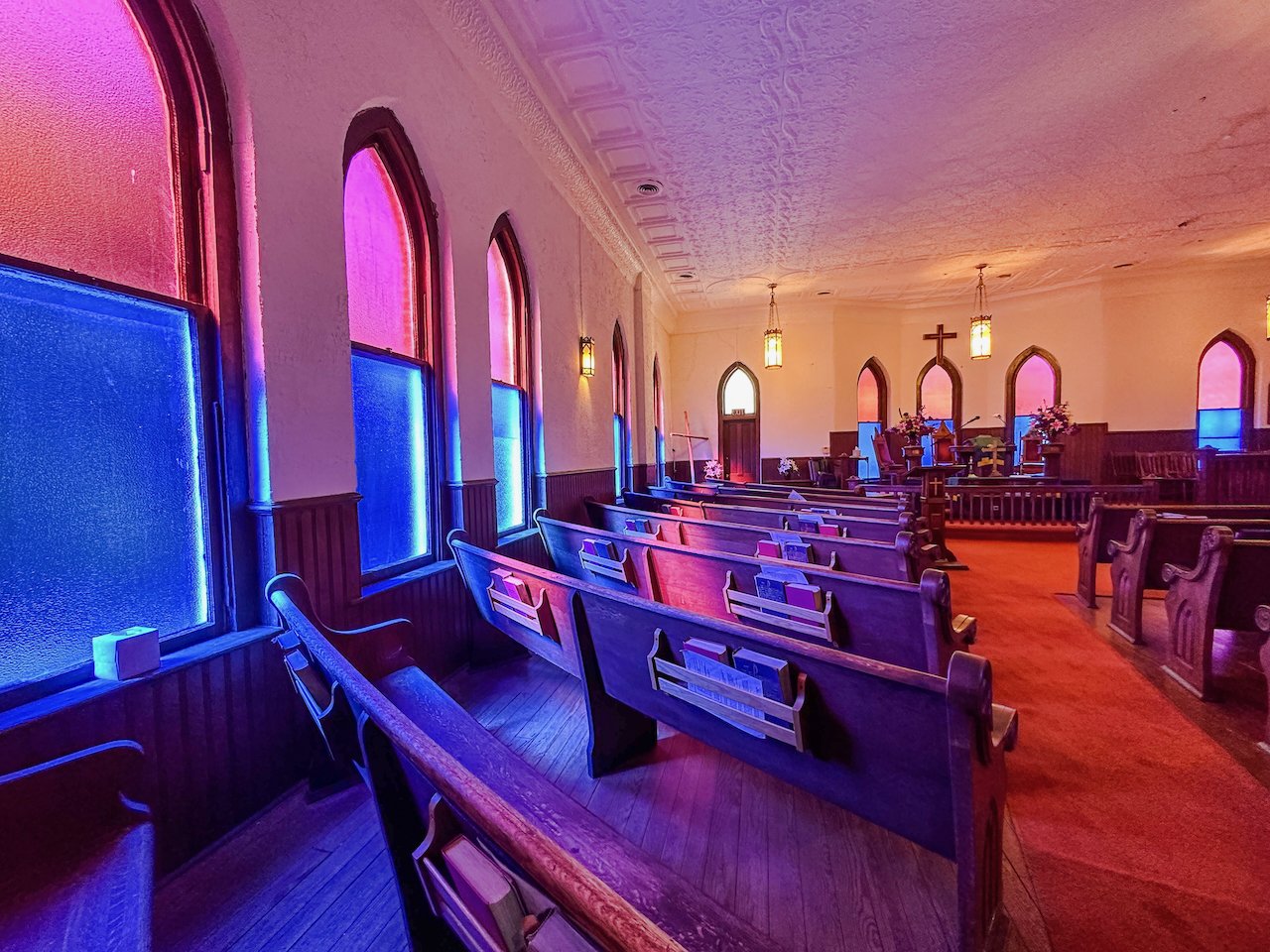

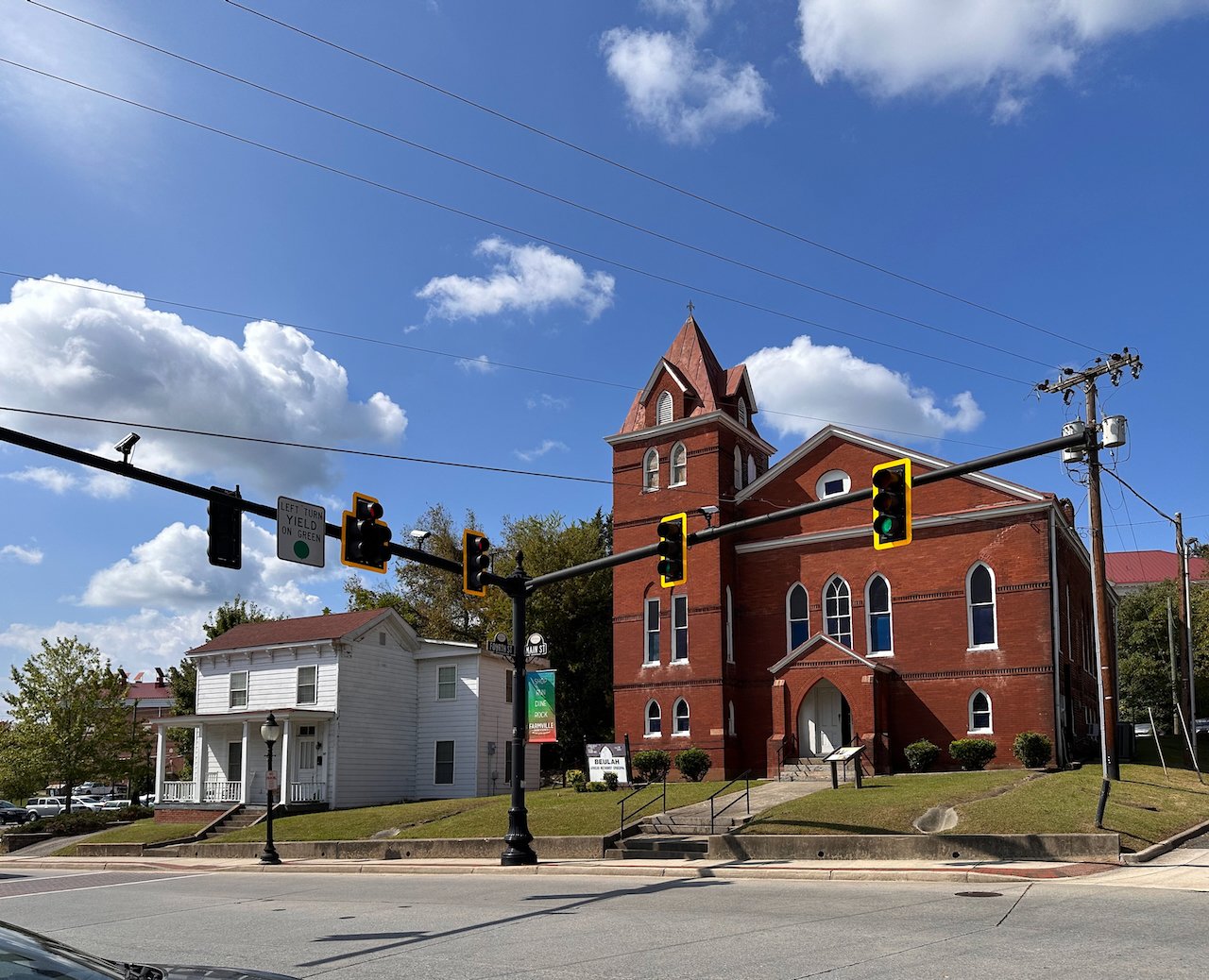
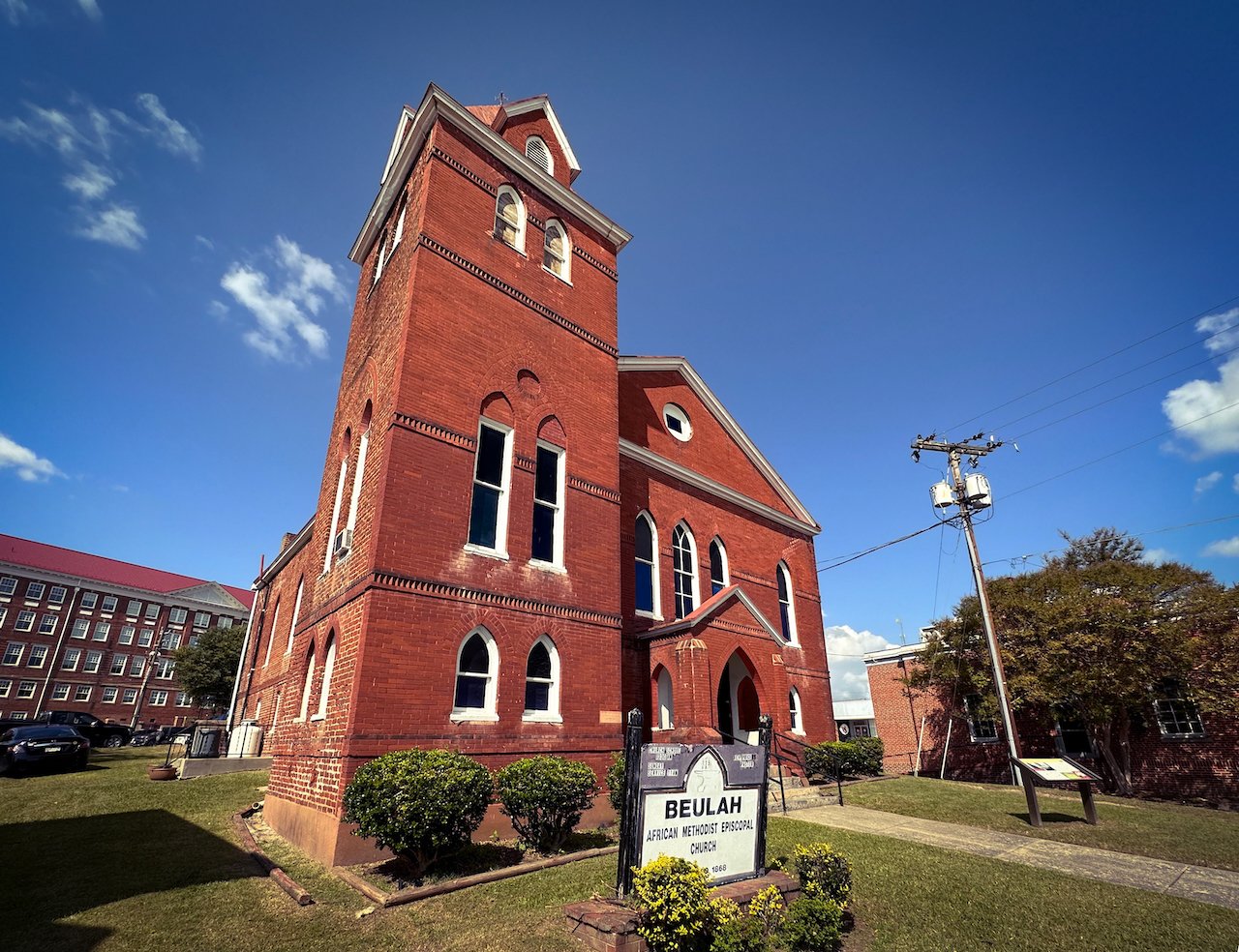

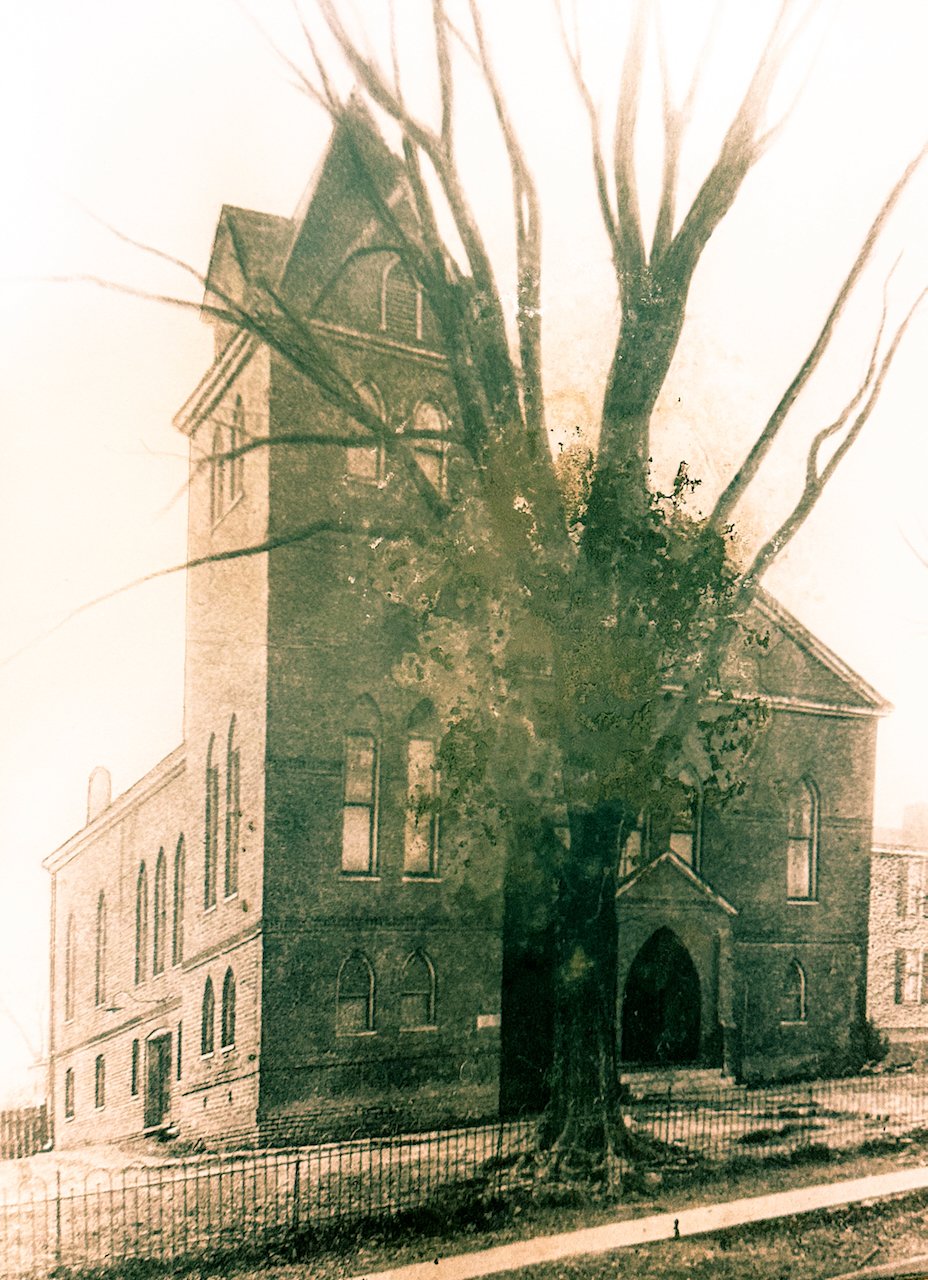
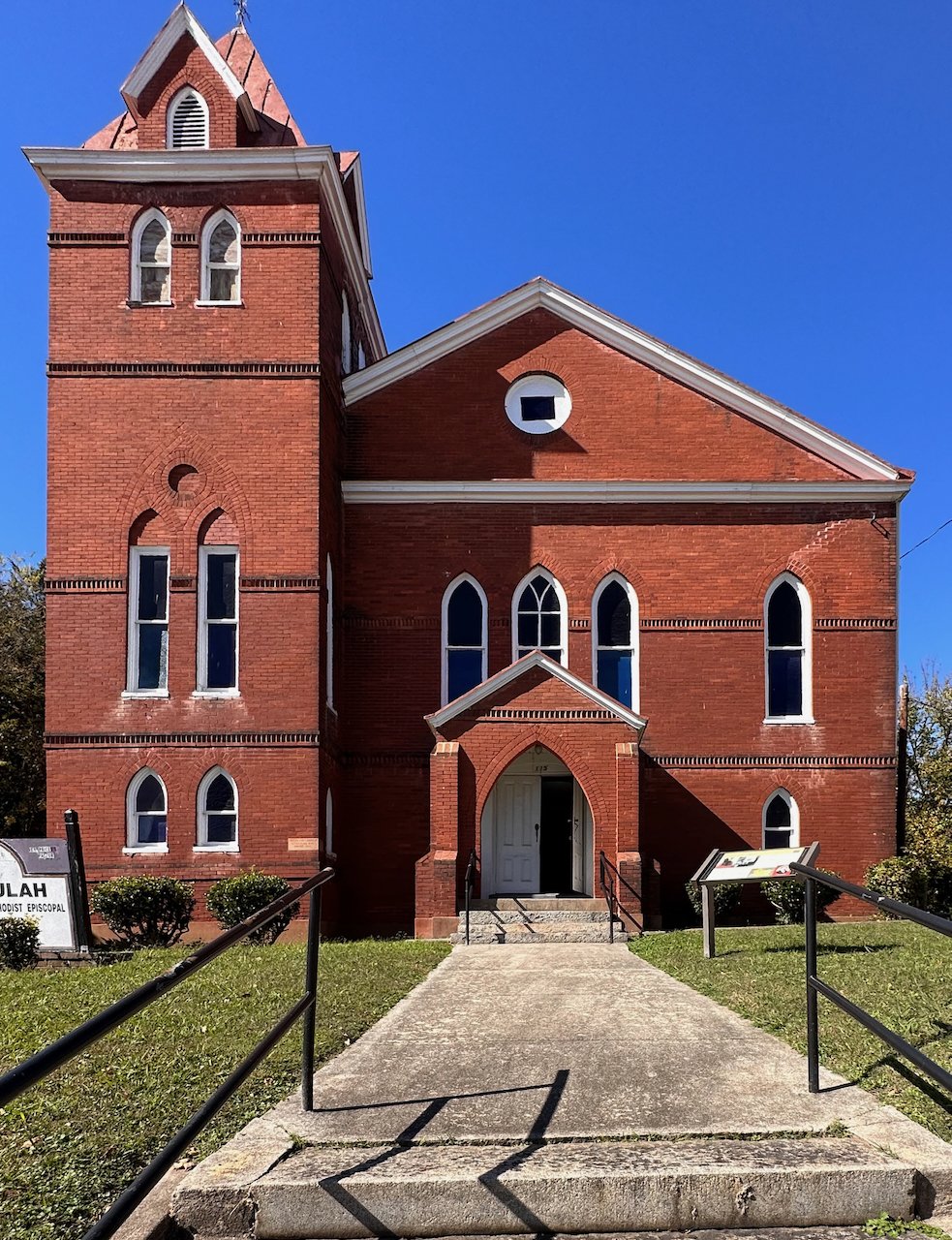

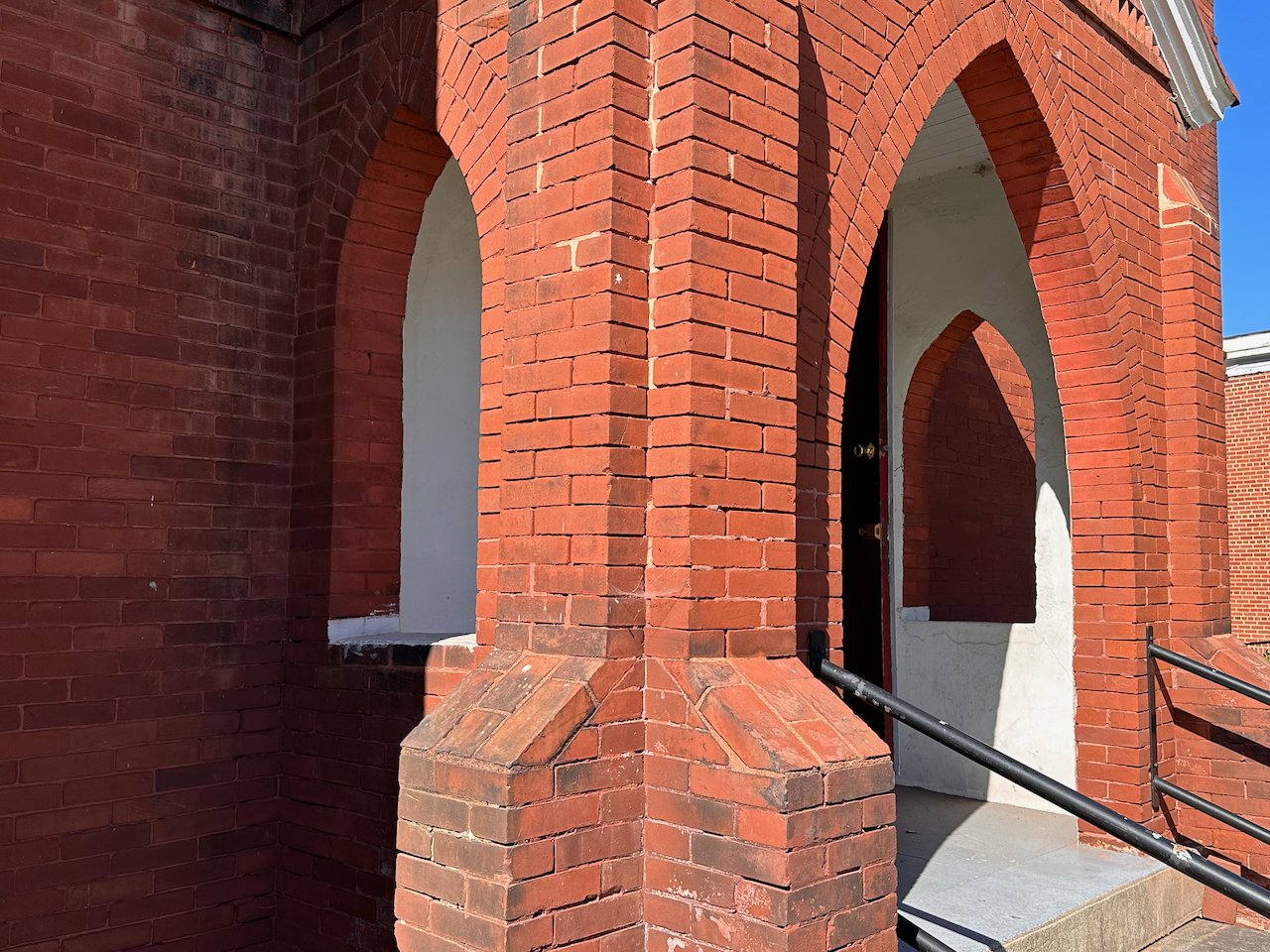
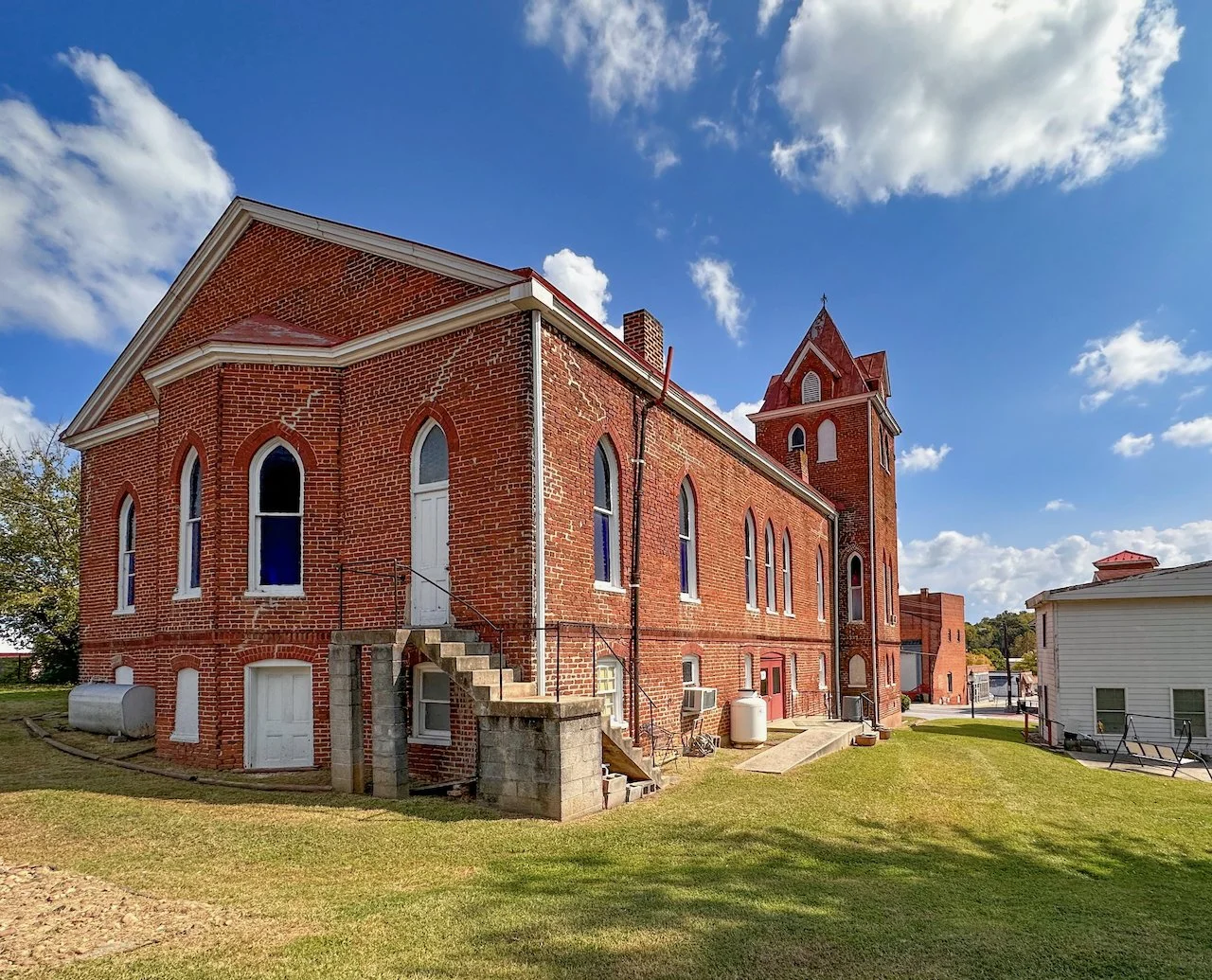
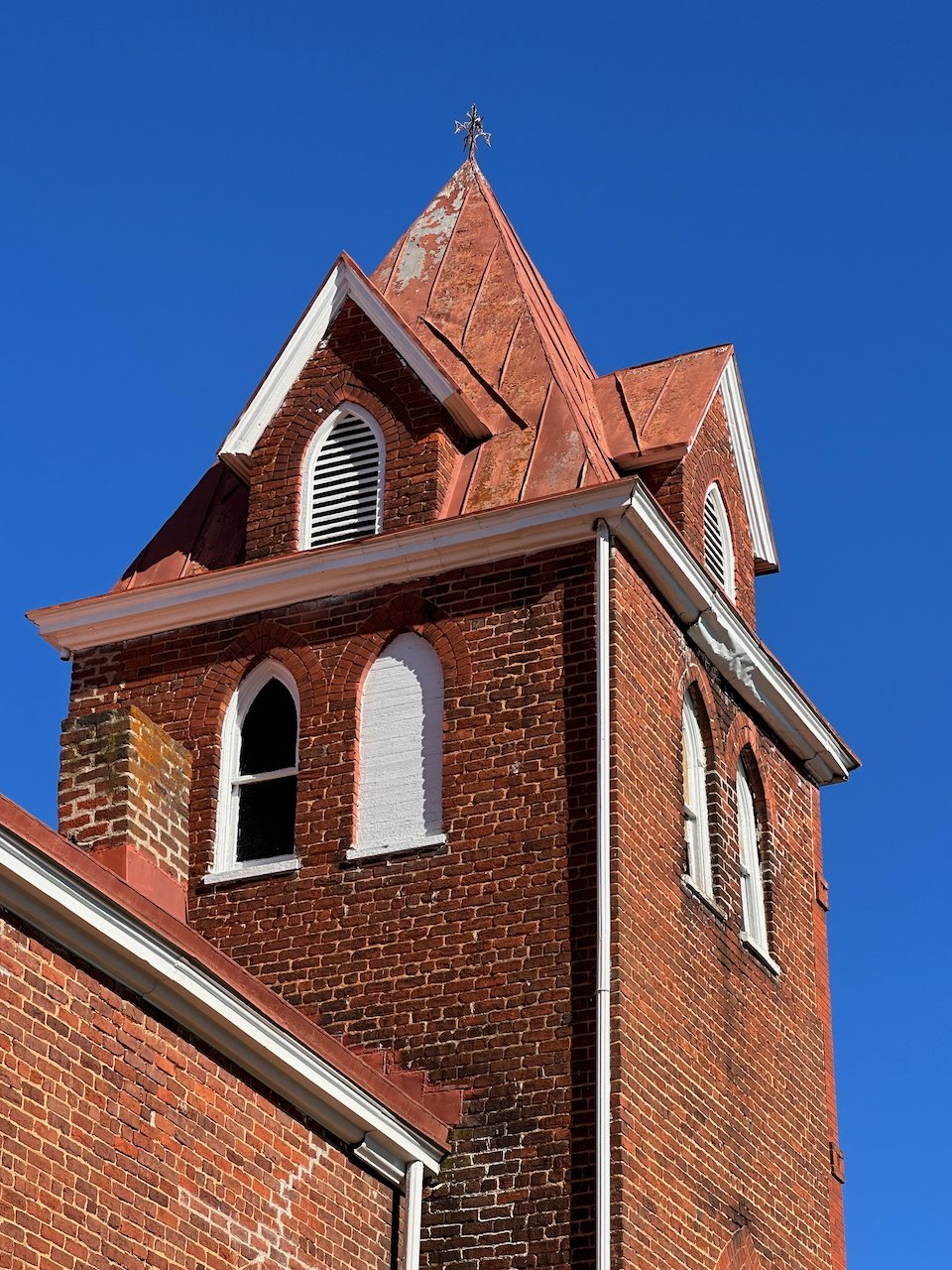
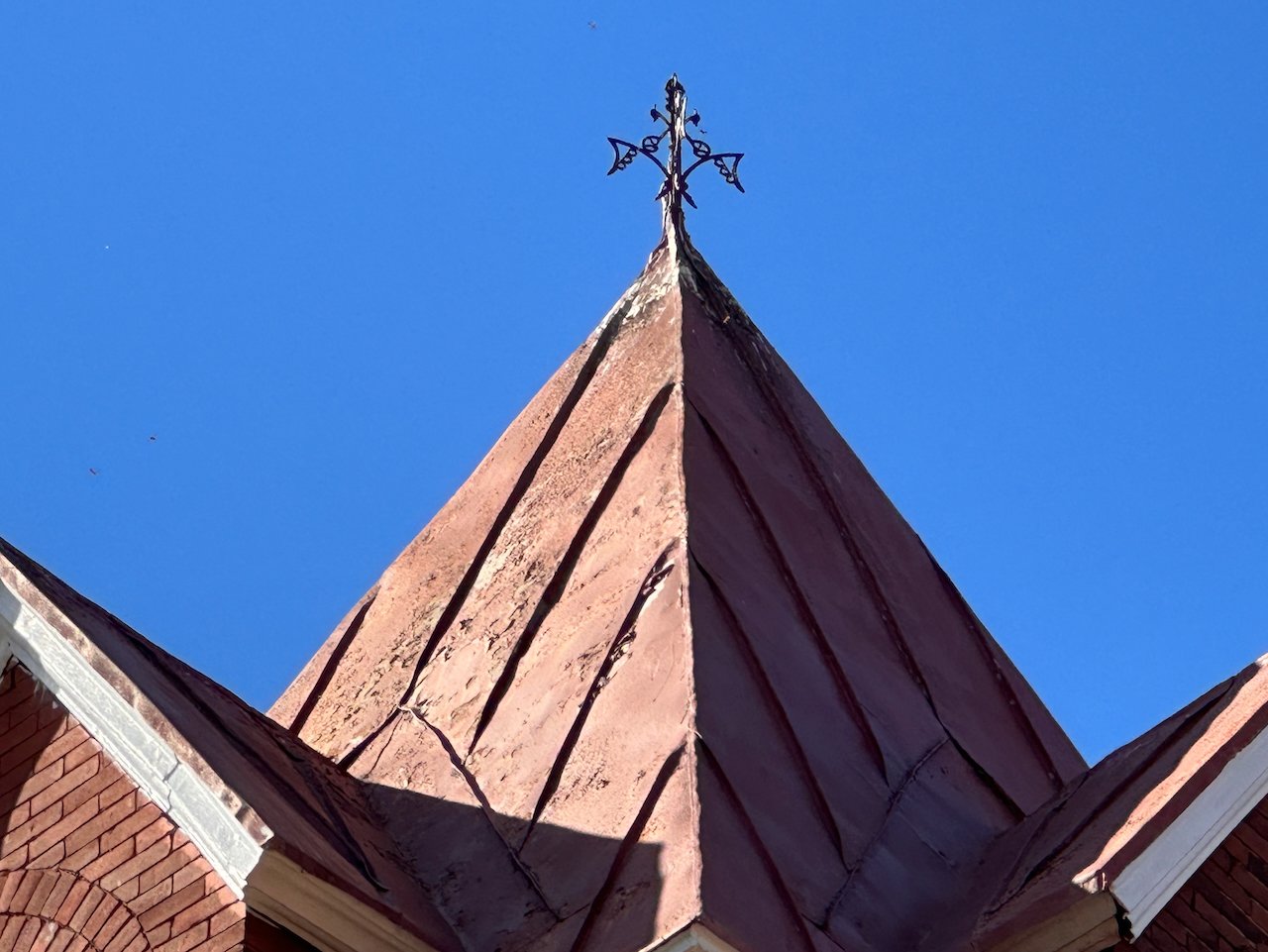

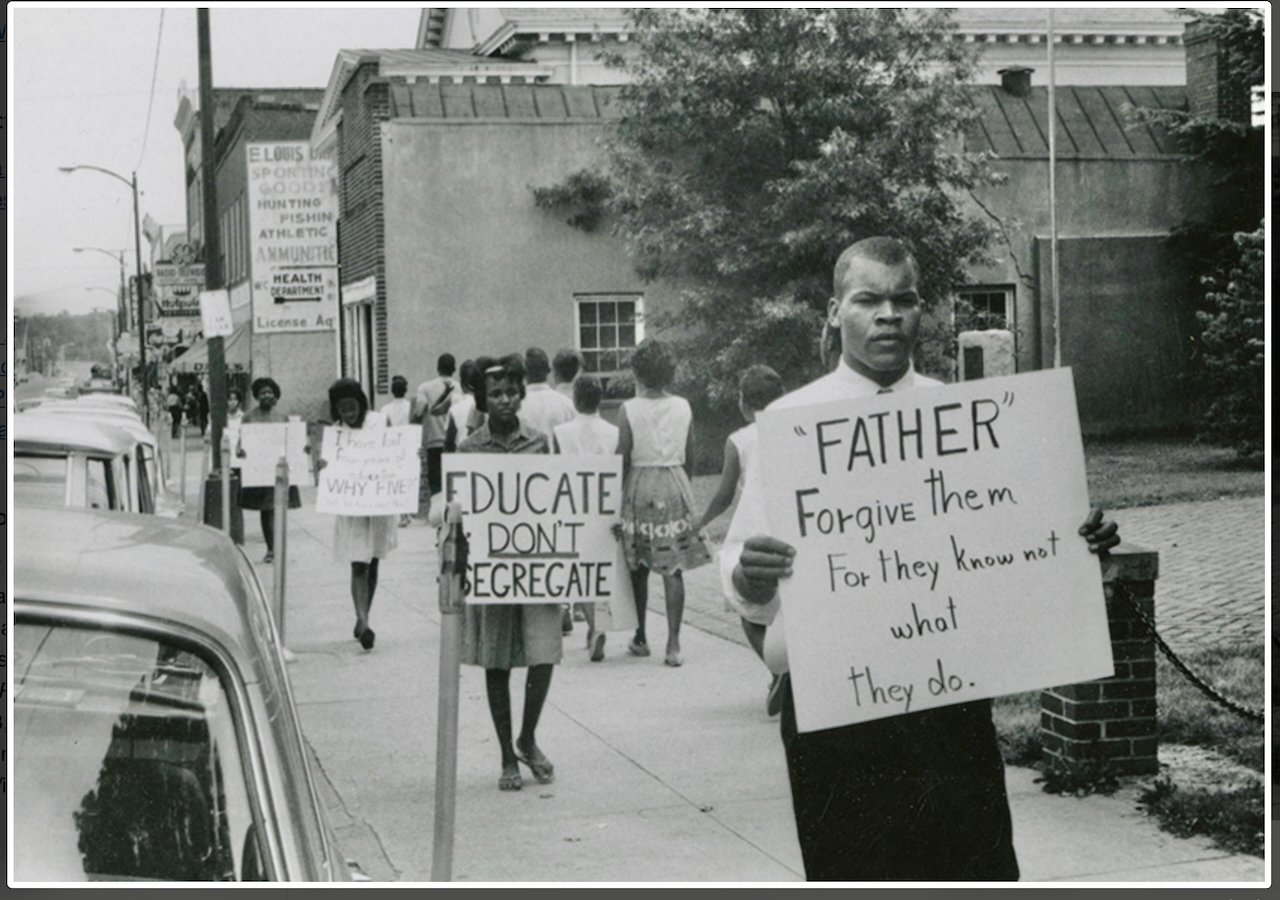

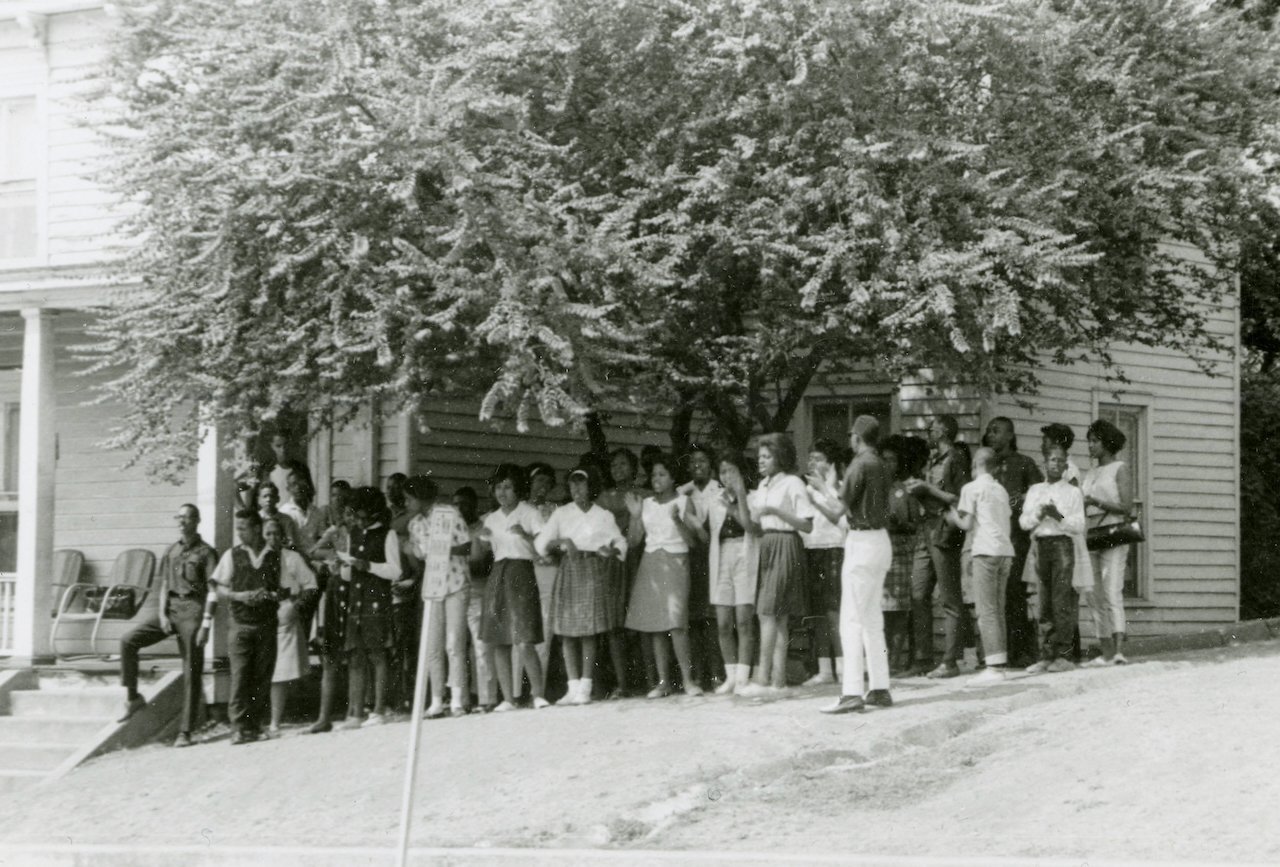
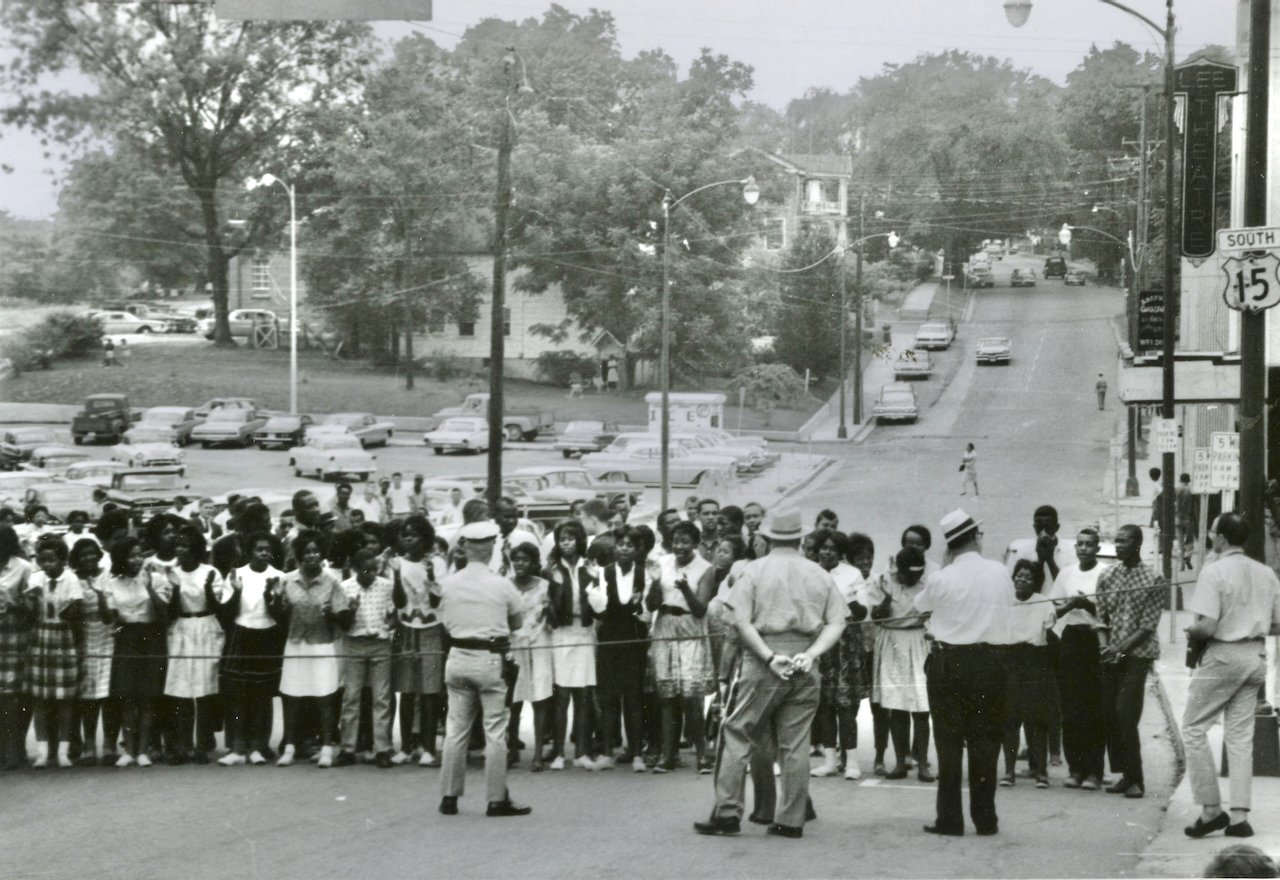
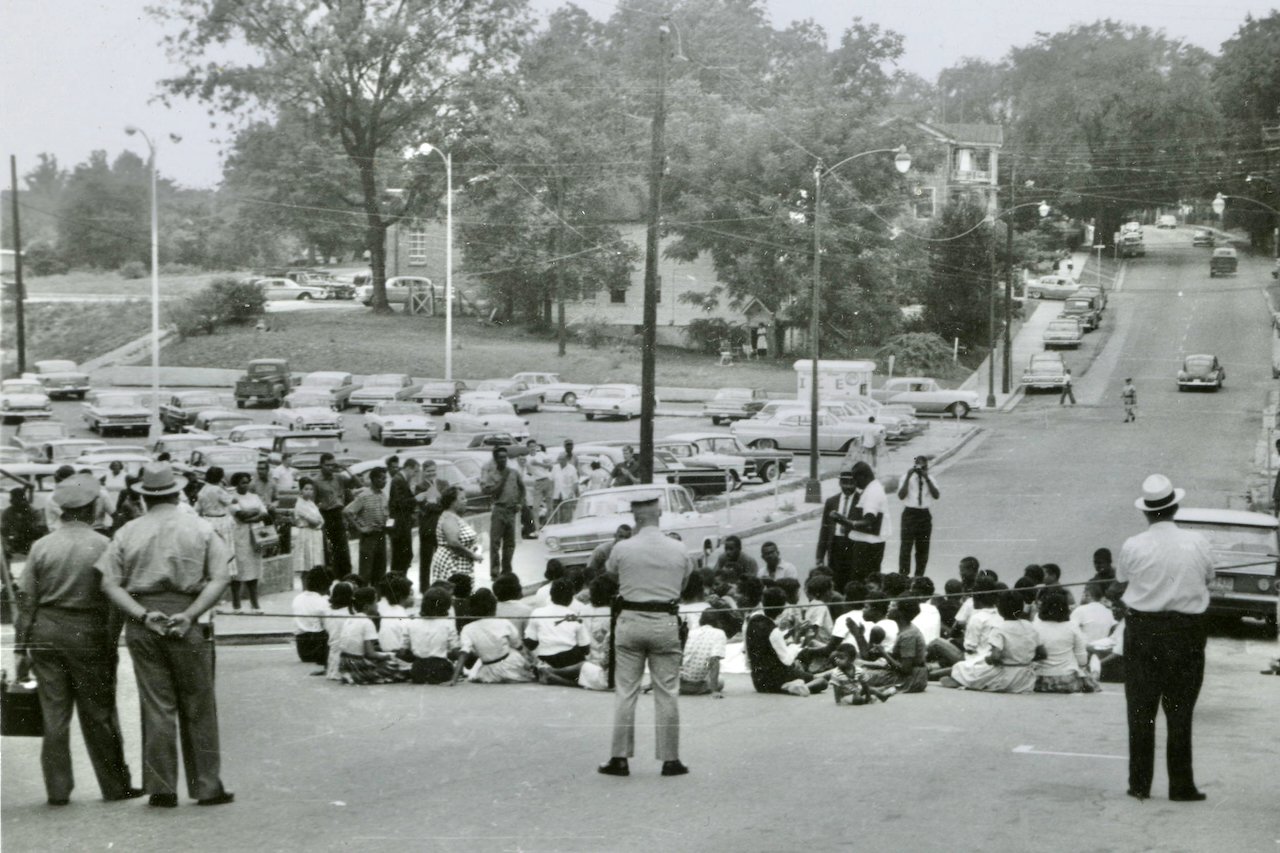
Your Custom Text Here
StudioAmmons worked with the folks at Beulah AME Church to develop an Historic Structures Report and a restoration plan.
FIND THE REPORT HERE
Beulah African Methodist Episcopal (AME) Church is an architectural landmark in downtown Farmville, Virginia, and an important historic site associated with Farmville’s African American community and the nationally significant Civil Rights events that took place in Farmville and Prince Edward County in the 1950s and 1960s. The Gothic Revival church was built in 1900-01 as the home for the Beulah AME congregation, which formed shortly after the Civil War. The impressive brick church building features a three-story corner tower, lancet-arched windows, blue and rose stained glass, and a Rococo-inspired pressed metal sanctuary ceiling. Next to the church stands the ca. 1890 parsonage, a two-story Italianate-style frame residence. Beulah AME was among the local African American congregations that responded to the segregationist closure of Prince Edward County schools during the period 1959-64 by working to fulfill the educational needs of black students. Beulah AME leaders including Rev. A. I. Dunlap and Rev. Goodwin Douglas played important roles in response to the crisis, a key event in the national Civil Rights movement.
For about 40 years, from the 1940s to the 1980s, a portion of the ground floor of the church was used as the Farmville Reading Room, a public library and gathering space for Famville's African American Community. Today, Beulah remains an active church with a small but committed congregation focused on continuing their service to God and Community while working to preserve and secure a future for the church and its legacy.
StudioAmmons worked with the folks at Beulah AME Church to develop an Historic Structures Report and a restoration plan.
FIND THE REPORT HERE
Beulah African Methodist Episcopal (AME) Church is an architectural landmark in downtown Farmville, Virginia, and an important historic site associated with Farmville’s African American community and the nationally significant Civil Rights events that took place in Farmville and Prince Edward County in the 1950s and 1960s. The Gothic Revival church was built in 1900-01 as the home for the Beulah AME congregation, which formed shortly after the Civil War. The impressive brick church building features a three-story corner tower, lancet-arched windows, blue and rose stained glass, and a Rococo-inspired pressed metal sanctuary ceiling. Next to the church stands the ca. 1890 parsonage, a two-story Italianate-style frame residence. Beulah AME was among the local African American congregations that responded to the segregationist closure of Prince Edward County schools during the period 1959-64 by working to fulfill the educational needs of black students. Beulah AME leaders including Rev. A. I. Dunlap and Rev. Goodwin Douglas played important roles in response to the crisis, a key event in the national Civil Rights movement.
For about 40 years, from the 1940s to the 1980s, a portion of the ground floor of the church was used as the Farmville Reading Room, a public library and gathering space for Famville's African American Community. Today, Beulah remains an active church with a small but committed congregation focused on continuing their service to God and Community while working to preserve and secure a future for the church and its legacy.